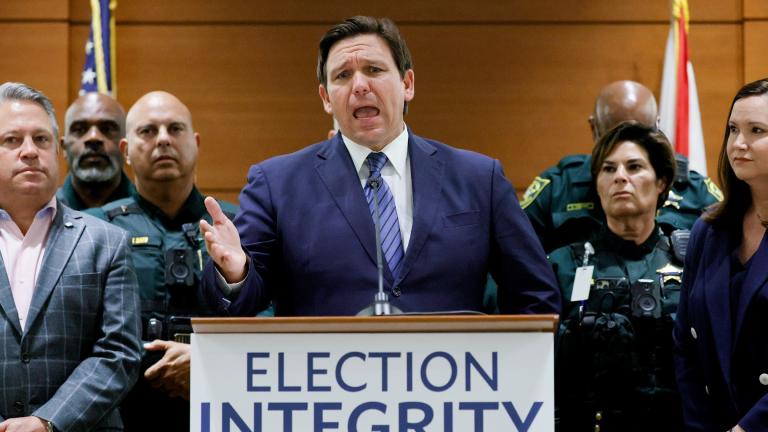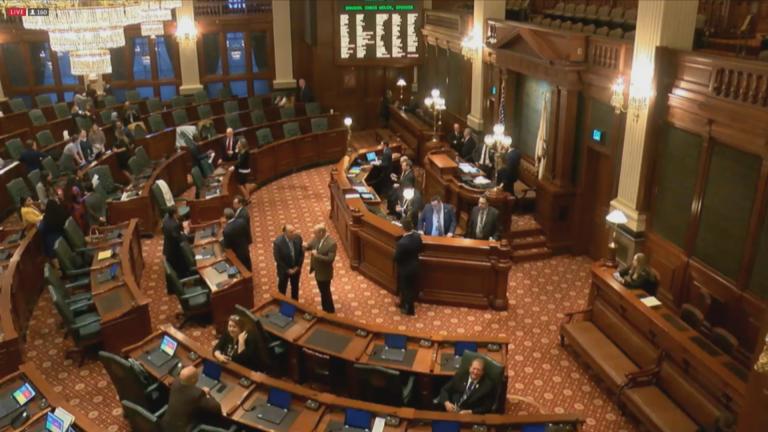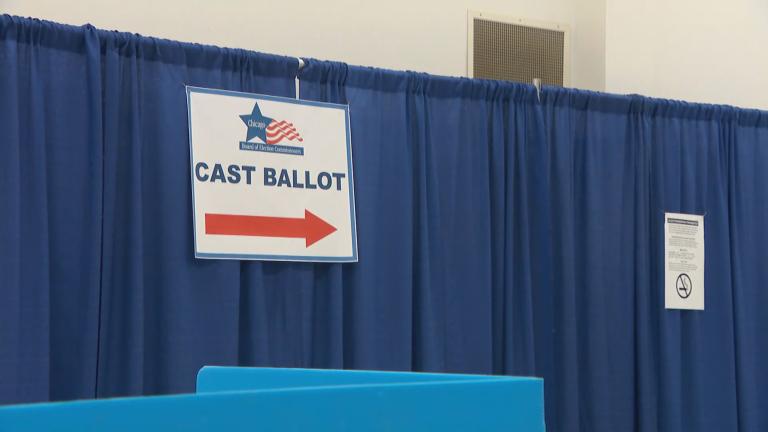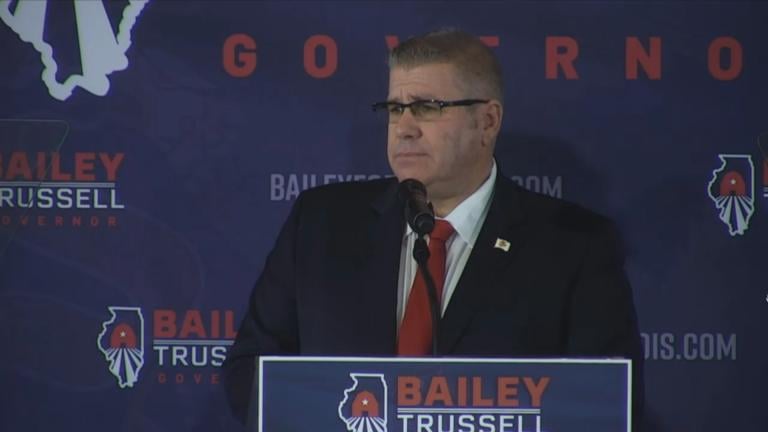Among the choices voters will have to make on Nov. 8 is whether to add a new amendment to the Illinois constitution that would give workers the “fundamental right to organize and to bargain collectively” while at the same time forbidding any law that interferes with that ability.
The amendment would add a “Workers’ Rights” section to the state Bill of Rights, that reads: “Employees shall have the fundamental right to organize and to bargain collectively through representatives of their own choosing for the purpose of negotiating wages, hours and working conditions, and to protect their economic welfare and safety and work. No law shall be passed that interferes with, negates, or diminishes the right of employees to organize and bargain collectively over their wages, hours, and other terms and conditions of employment and work place safety, including any law or ordinance that prohibits the execution or application of agreements between employers and labor organizations that represent employees requiring membership in an organization as a condition of employment.”
Unions are making a big push for voters to agree to the change.
Tim Drea, head of the Illinois AFL-CIO, said the amendment would be a game-changer for workers.
“A person spends nearly a majority of their life at work. Those rights, those workers’ rights, need to be included in the constitution so they’re preserved,” Drea said. “We certainly wouldn’t give the right to free speech or the right to worship how you please or any other rights, just saying ‘Oh we’ll leave it up to state statute.’”
Drea said former Illinois Gov. Bruce Rauner's attempts to curtail prevailing wage laws and make Illinois a right-to-work state were a wake-up call.
By and large, Rauner wasn’t successful in his efforts, though the Illinois-based Janus vs. AFSCME U.S. Supreme Court decision, which found that public employees could not be made to pay union fees as a condition of working for a governmental entity, did weaken public unions.
Unlike right-to-work states, Illinois private companies can still require employees to join a union as a condition of employment.
Illinois Chamber of Commerce President Todd Maisch said those who want a job shouldn’t have to pay for union pensions and operations if they don’t want to, but he said the political reality is there is no chance of Illinois joining most of its neighbors by becoming a right-to-work state.
“We know the political whims here in Illinois. We know that Illinois is not going to join Indiana, Wisconsin, Michigan, Iowa and Kentucky as right-to-work states any time soon. We know that. But why enshrine it in the constitution when it just sends a message out to everyone who might be looking to invest in Illinois about where our priorities really lie,” Maisch said
He described those priorities as being with unions, and not job creators.
Maisch said the amendment push is “political opportunism” on the part of labor
“And what it does, it takes it off the table. They don’t have to make the case every year why right-to-work is or is not a good idea. It just takes it off the table for a generation if not two so they don’t have to spend any kind of political juice behind that agenda and they can move on to other things,” Maisch said.
But Joe Bowen, who does communications for the Vote Yes for Workers’ Rights group campaigning for passage of the amendment, said investing in the workforce attracts businesses and creates jobs.
He said boosting wages will boost state revenues, and that of private businesses.
“We know when working people do better they don’t just buy stocks, they buy dinner at local restaurants, they pick up a cup of coffee from a local shop. And that spending doesn’t just benefit those families and those small businesses, it really contributes to their local community as well as our entire state,” Bowen said. “So voting yes for the workers’ rights amendments will help us put more money in the pockets of working families, it will help us keep them safe on the job, and it will protect their rights in the workplace from politicians in the future.”
Another criticism is based on the phrase that specifies what unions can bargain about: wages, hours and working conditions but also “economic welfare.”
Critics say “economic welfare” is a broad term that will give teachers and other public unions more leeway to go on strike.
Current state law sets conditions for when educators can strike, such as that the parties have tried mediation without success.
“We believe under this amendment somebody can go straight to the Supreme Court and say, ‘That law is no longer constitutional, we can go straight from having some grievances straight to a strike.’ And the existing state law that modulates that can be thrown out in a matter of minutes,” Maisch said.
That’s also a concern for Mailee Smith, the director of labor policy at the right-leaning think tank the Illinois Policy Institute.
She said save for the right-to-work ban, which the National Labor Relations Act carves out as a decision to be made by states, the bulk of the amendment will only apply to public sector unions because national law takes precedence.
She said fights over that will lead to lawsuits.
“What we will probably see first is patchwork litigation, while unions try to implement some of these new rights in the private sector. And employers are going to have to fight that out in litigation, and until there is that final court decision that says ‘no this really can’t apply to the private sector’ that’s going to be costly to employers,” Smith said.
Smith said the expansion of bargaining beyond wages and benefits will lead to “drastic consequences.”
“The government union is really going to be at the whim of the union because they will hold all the power – they can go on strike to get these broad new demands met,” Smith said. “Government contracts will cost more. These expanded subjects will make negotiations cost more, they will make the contract that is negotiated cost more, and that will be passed on to the taxpayers to pay for it.”
Union leader Drea says there are no plans to make major changes or push for new laws if amendment passes. Instead, the amendment proposal is about preserving rights.
“Labor will always be in there, building upon it. As technology changes and things happen we’re always going to build on workers’ rights,” Drea said. “But we don’t have any nefarious plan to go in and take over the world with this amendment.”
Propped with union financial support, the Vote Yes for Workers’ Rights ballot initiative committee has millions more to to spend getting out its message, compared with the $1 million the Vote No On Amendment 1 group has, thanks to conservative donor Richard Uihlein of U-Line Corporation.
Bowen, with the campaign said there has never been a more important time for union protections to be added to the Bill of Rights.
“We know that there will be more attacks against working folks, when you see them almost every day from some of the largest corporations and from major special interest groups. And I do think that Illinoisians should be wiling to step up and protect their rights now and in the future,” Bowen said. “We live in one of the most unpredictable times politically.”
Democrats in the state Legislature voted to put this question on the November ballot.
To be added to the constitution, it will need yes votes from either three-fifths of those who vote on the proposal or from a majority of those who cast votes in the November election, even if they skip this particular question.
Follow Amanda Vinicky on Twitter: @AmandaVinicky








